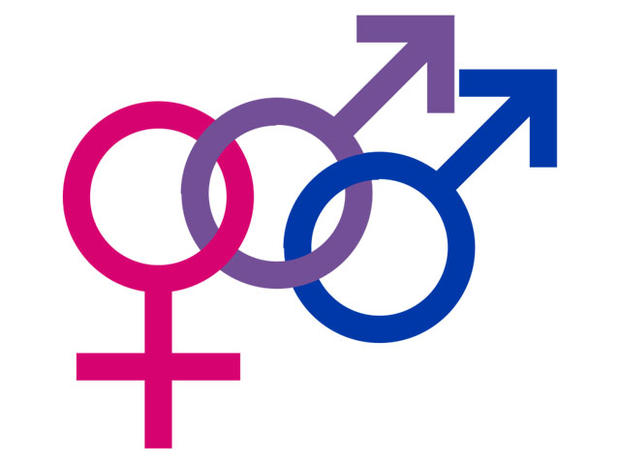15 percent of people don't think bisexuality is real sexual orientation: Study
A new study reveals that bisexual individuals may face stigmas that could negatively affect their mental and physical health.
Researcher surveyed an adult population and found the overall opinion towards bisexuality was a negative one, with 15 percent saying they outright disagreed that bisexuality was a real sexual orientation.
The research, which was presented on Nov. 5 at the American Public Health Association's 141st Annual Meeting & Exposition in Boston, may have negative implications for the bisexual community, according to the authors.
"Bisexual men and women face prejudice, stigma and discrimination from both heterosexual and homosexual people," said Mackey Friedman, a researcher at the University of Pittsburgh Graduate School of Public Health and director of HIV prevention initiative Project Silk, said in a press release. "This can cause feelings of isolation and marginalization, which prior research has shown leads to higher substance use, depression and risky sexual behavior."
He added, "It also can result in lower rates of HIV testing and treatment."
Government estimates say that more than one million people in the U.S. are currently living with HIV. Men who have sex with men are most affected by the disease. Sixty-one percent of all new HIV infections in 2009, and almost half of people living with HIV in 2008 were men who had sex with men.
The Centers for Disease Control and Prevention (CDC) say that men who have sex with men make up only 2 percent of the U.S. population aged 13 and older, but they do not have statistics on bisexuals only. The researchers estimated that 1.2 million men in the U.S. are bisexual, and about 121,800 are HIV-positive.
Friedman was interested in estimating the number of bisexual men with the disease because there are not that many statistics on that segment of the population. After reviewing 3,000 scientific reports, the researchers determined that bisexual men were only 40 percent as likely as homosexual men to have HIV.
They also found the infection rate for bisexual rate men is similar to the CDC estimates on HIV for male heterosexuals and intravenous drug users.
The lower rates may be attributable to the fact that bisexual men are less likely to have unprotected receptive anal sex, the researchers speculated.
"The HIV infection risk that bisexual men pose to their female partners has likely been overstated," Friedman said to HealthDay. "However, that doesn't mean that HIV-prevention campaigns targeting bisexual men and their male and female partners aren't needed. HIV does exist in the bisexual community, and national, bisexual-specific data collection, research, and HIV prevention and care delivery are necessary to ameliorate this population's HIV burden."
To learn more about attitudes towards bisexuality, researchers came up with a 33-question survey and had 1,500 adults complete the questions online.
They discovered that men who identified as heterosexual were three times more likely to consider bisexuality "not a legitimate sexual orientation."
Women, white people and people who said they were a member of the lesbian, gay or bisexual community were less likely to have negative attitudes towards bisexual people. However, even within the LGBT community, those who were gay or lesbian were more likely to be biased or prejudiced towards bisexual people than those who identified as bisexual.
Male bisexuals were more stigmatized than females.
Friedman's previous studies on bisexual men and women revealed that many college-aged students considered bisexual people "confused," "different" and "experimental."
"Having hard data to back up why a bisexual person might feel the need to be secretive about sexual orientation, something that can lead to higher depression and many other negative health outcomes, is very useful to people trying to fight stigma and marginalization," Friedman said.
He added that the study can hopefully help people target social marketing programs and outreach towards reducing the negative opinion of bisexuals. He also hoped these methods would help improve rates of HIV prevention, testing and treatment within the bisexual community.

